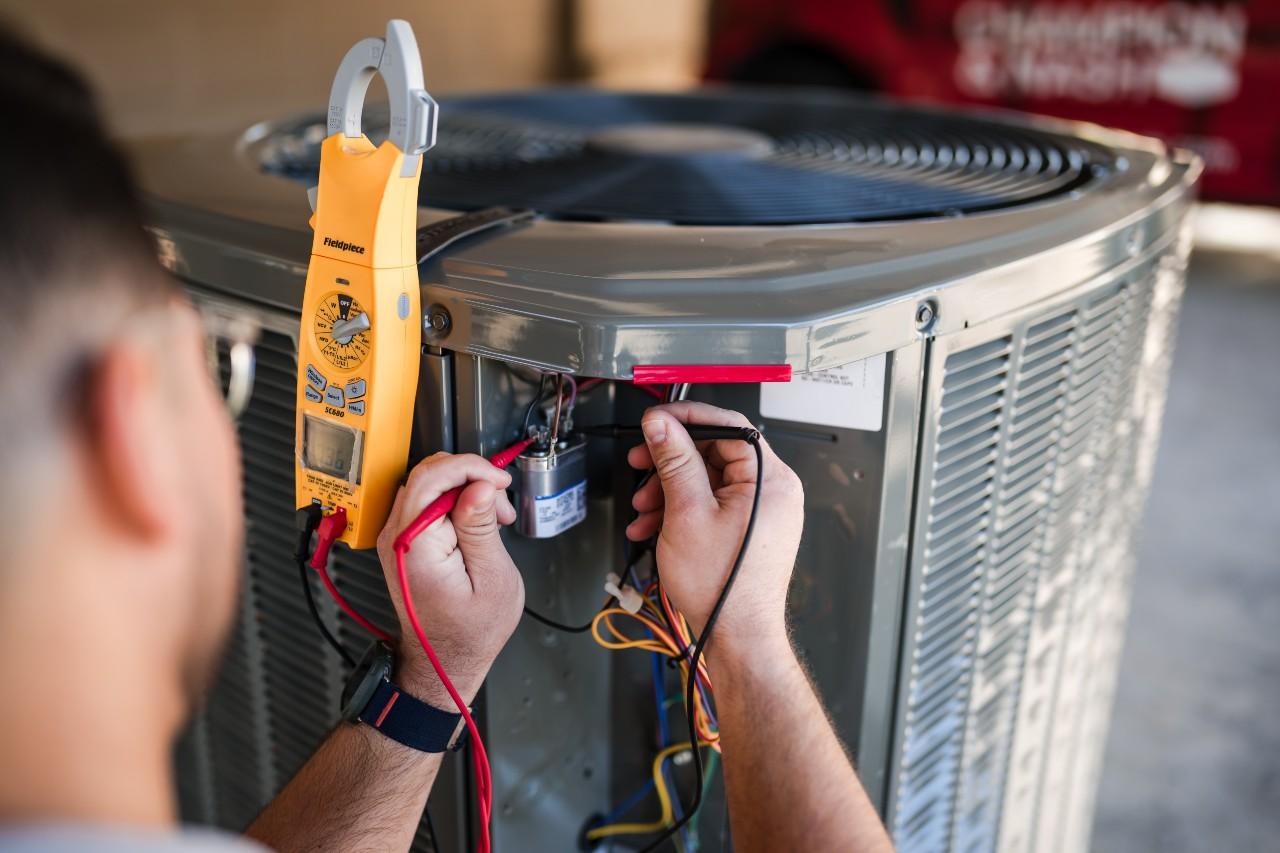Extend your aircon’s lifespan with expert maintenance tips from Champion and Nash. Learn easy home care steps to boost efficiency and comfort.

In Houston’s hot and humid climate, your air conditioner works harder than almost anywhere else in the country. With temperatures regularly hitting the high 90s and humidity levels that rarely dip, a reliable cooling system isn’t a luxury—it’s a necessity. Proper maintenance and a few simple habits can significantly extend your aircon lifespan, saving you money and avoiding mid-summer breakdowns. By following consistent home care routines and partnering with trusted professionals like Champion and Nash, homeowners can keep their systems performing at peak efficiency for years longer.
One of the simplest yet most effective ways to extend your aircon life is by maintaining clean filters. Over time, dust, pet hair, and pollen build up, restricting airflow and forcing your system to work harder. This not only reduces efficiency but can also cause your unit to overheat or freeze up. Most Houston homeowners should replace or clean filters every one to three months, depending on usage.
Clogged filters can increase energy consumption by up to 15%. Regular replacements help maintain good indoor air quality and ensure your aircon doesn’t have to strain to circulate cool air.
Your outdoor condenser plays a vital role in heat exchange. Unfortunately, Houston’s frequent storms, pollen, and vegetation can quickly clog the unit’s coils and fins. To prevent this, keep at least two feet of clearance around the condenser. Trim plants, remove debris, and gently rinse coils with a garden hose every few months.
Never use a pressure washer—it can bend delicate fins and cause permanent damage. Professional coil cleaning by Champion and Nash AC maintenance experts once or twice a year ensures thorough, safe cleaning that enhances cooling performance.
Even if your system seems to be running fine, regular professional tune-ups are critical. Technicians perform tasks that go beyond DIY care, including checking refrigerant levels, cleaning evaporator coils, tightening electrical connections, and ensuring proper airflow.
Professional inspections help identify small issues—like worn-out belts or refrigerant leaks—before they turn into expensive repairs. Champion and Nash AC repair offers detailed diagnostics to help keep Houston homes cool year-round.

Houston’s fluctuating temperatures make it tempting to keep your thermostat set very low, but this can overwork your system. For best results, keep your thermostat around 76–78°F during summer days and raise it slightly when you’re not home. Smart thermostats, which pair perfectly with modern aircon systems, adjust automatically to balance comfort and energy savings.
The U.S. Department of Energy estimates homeowners save up to 10% annually on cooling costs by increasing indoor temperatures just 7–10 degrees for eight hours a day.
Leaky ductwork wastes a surprising amount of energy—sometimes up to 30%. When cooled air escapes before it reaches your living spaces, your aircon runs longer, increasing wear and tear. Have your ducts inspected by a professional at least every few years, especially if you notice uneven cooling or high energy bills.
Sealing ducts not only saves energy but also improves indoor air quality by preventing dust and allergens from entering the airflow.
Houston’s humidity makes air conditioning systems work overtime. Excess moisture not only strains your aircon but also contributes to mold growth and discomfort. Use exhaust fans while cooking or showering, and consider a whole-house dehumidifier if humidity remains high indoors.
According to Homes & Gardens, maintaining humidity between 40–50% helps air conditioners perform efficiently and keeps indoor air healthier.
The condensate drain line removes moisture your aircon pulls from the air. In Houston’s humid environment, algae and debris can easily clog the line, leading to leaks or water damage. Once a month, pour a cup of white vinegar down the line to help prevent buildup. If you notice standing water near your air handler, it’s time to call a professional.
Ignoring minor issues can shorten your aircon lifespan dramatically. Strange noises, weak airflow, or inconsistent temperatures often indicate small problems that can worsen if left unchecked. Contact Champion and Nash AC repair at the first sign of trouble. Quick action can save you from compressor failure or full system replacement.
If your aircon is more than 10–12 years old, replacing it with a modern, energy-efficient model may be more cost-effective than continuing repairs. Today’s systems feature advanced variable-speed compressors and smart controls that deliver superior comfort with lower energy use.
For expert installation, trust Champion and Nash AC install to properly size and configure your new system for Houston’s climate. According to energy.gov, replacing an older AC with a high-efficiency unit can reduce cooling energy use by up to 50%.
Blocked vents restrict airflow, forcing your aircon to work harder to maintain temperature. Avoid placing furniture or curtains over vents, and vacuum them regularly to remove dust buildup. Balanced airflow keeps your home comfortable and your system efficient.
Good insulation helps your aircon operate efficiently. Inspect attics and walls for gaps, and consider upgrading to energy-efficient windows if your home still has single-pane glass. Proper insulation reduces the amount of heat entering your home, meaning your system doesn’t need to run as long to stay cool.
Most air conditioners last 12–15 years, but with regular maintenance, Houston homeowners can stretch that lifespan to 18–20 years. Consistent cleaning, annual tune-ups, and avoiding overuse during extreme heat all contribute to longevity.
You should schedule maintenance at least twice a year—once in spring before peak season and once in fall. Regular service ensures refrigerant levels, coils, and electrical components are in top condition, preventing major system failures.
Light cleaning using a gentle garden hose is fine, but deep cleaning should be left to professionals. Using incorrect cleaning agents or too much pressure can damage coils, leading to costly repairs. Champion and Nash technicians safely restore coil efficiency during scheduled maintenance visits.
Yes! Ceiling fans circulate cool air, allowing you to set your thermostat a few degrees higher without losing comfort. This reduces runtime, cuts energy use, and helps extend the system’s lifespan.
Rising energy bills, frequent repairs, and uneven temperatures are red flags. If your unit struggles to maintain temperature or makes loud noises, it’s time for a professional evaluation.
In Houston’s demanding climate, your aircon is your home’s hardest-working appliance. With a little attention and regular professional care, it can keep your home comfortable for decades. Simple steps—like changing filters, clearing drain lines, and scheduling maintenance—go a long way toward preventing breakdowns and saving money.
Partnering with Champion and Nash gives you access to experienced technicians who understand Houston’s conditions and know how to keep your aircon running strong. Protect your comfort, improve energy efficiency, and enjoy a cooler, healthier home for years to come.